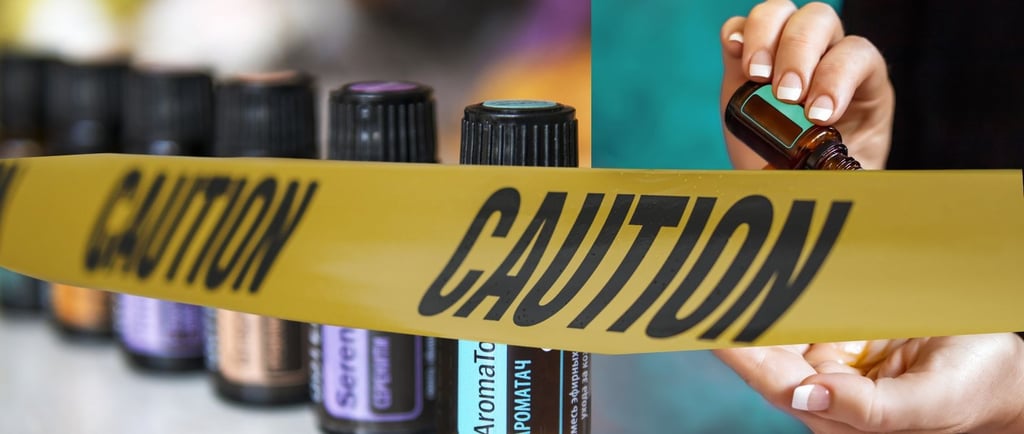Navigating Safe Use: Essential Oil Cautions and Considerations
Discover the essential safety guidelines for using essential oils in this blog. We cover crucial topics such as the importance of dilution, conducting patch tests, photosensitivity concerns, and choosing high-quality oils, ensuring you harness the potential benefits of essential oils safely and effectively


Essential oils are widely used in a variety of applications, from cosmetic regimens to home use, thanks to their alluring scents and potential advantages. However, it's crucial to comprehend the required measures to ensure safe and effective use, just like with any substance we use on our bodies or in our environment. We'll look at some of the important factors to take into account when utilizing essential oils safely in this blog post.
It is vital to dilute pure essential oils because they are highly concentrated and may cause skin sensitivity or irritation when applied directly. As a result, before topical application, essential oils must be diluted with a carrier oil such jojoba, almond, or coconut oil. Adults should generally stick to a 2% dilution, which works out to about 12 drops of essential oil per ounce of carrier oil.
Patch testing for sensitivity is always advised prior to frequent use due to the strong nature of essential oils. To check for an unpleasant reaction, apply a tiny amount of diluted essential oil to a small patch of skin and wait 24 hours.
Internal Use: Even in modest doses, some essential oils can be harmful if consumed. Before considering using any essential oil internally, always speak with a licensed healthcare provider or aromatherapist.
Photosensitivity: Some essential oils, especially those with citrus bases, can increase your skin's sensitivity to sunshine and hasten the onset of sunburn. If you use these oils topically, wait at least 12 hours before going outside in the sun.
Children and Pregnancy: Some essential oils might not be safe to use around babies or very young children. Always seek medical advice before utilizing essential oils in such situations.
Medications and Essential Oil Interactions: Medications and health conditions may cause essential oils to interact. Before including essential oils in your routine, talk to a healthcare professional if you're on any medications or have a health problem.
Always select pure, high-grade essential oils from reliable suppliers because quality matters. Oils of poor quality or those tampered with with synthetic substances may result in negative effects.
In essence, even though essential oils provide a variety of potential advantages, they are also strong compounds that require caution while handling. Always adhere to usage directions, observe dilution restrictions, and seek medical advice as required. To maximize the potential advantages of essential oils, always utilize them safely.
